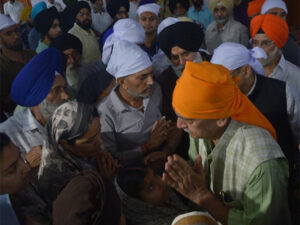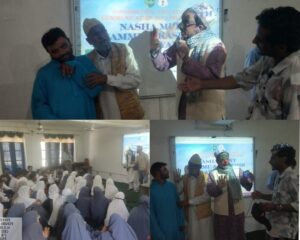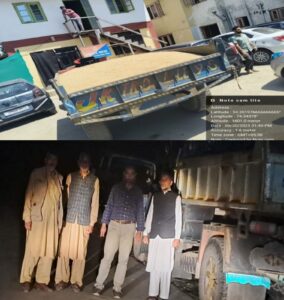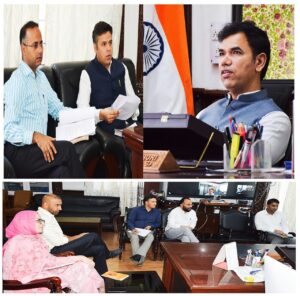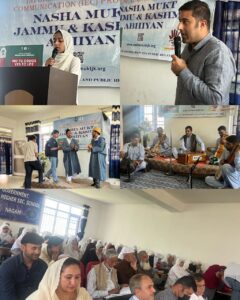Central University of Jammu organized an Expert Talk on the title “Know Your Army”, under the theme “Nation First: My Role”
Jammu, 21 May 2025: The Office of Dean Students’ Welfare (DSW) and the Department of National Security Studies (NSS) at the Central University of Jammu (CUJ), under the esteemed patronage of Honourable Vice-Chancellor Prof. Sanjeev Jain, organised an Expert Talk on the theme “Nation First: My Role”and “Know Your Army”.Two prominent army veterans, Lt. Gen. Jagbir Singh Cheema (Retd.) and Brigadier (Retd.) Harcharan Singh, VSM, graced the occasion. The event commenced with a warm welcome address by Dr. Neeta Rani, Head of the Department, NSS. She highlighted the relevance of the theme in the backdrop of the current national security landscape.She also introduced the speakers. Prof. Ritu Bakshi, Dean Students’ Welfare provided a detailed overview of the programme.
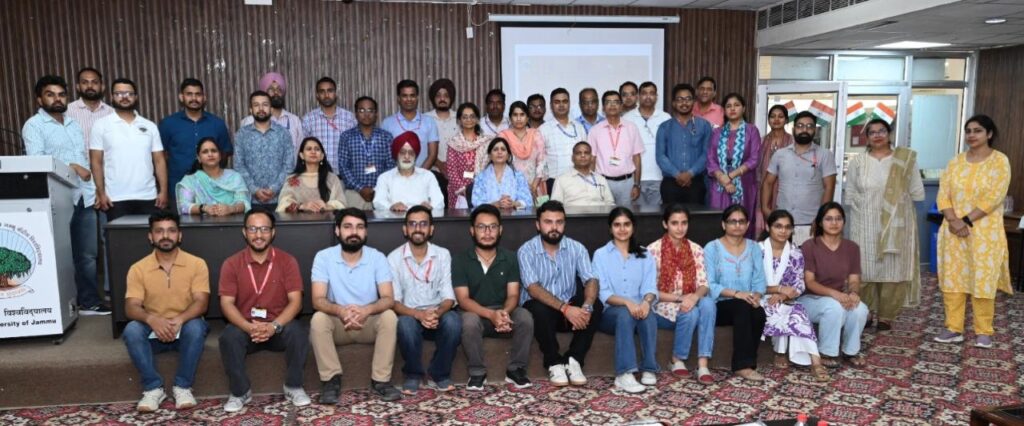
In an enlightening discourse, speaker Lt. Gen. J.S.Cheema (Retd.) shed light on the strategic execution and implications of Operation Sindoor, calling it a landmark in India’s modern warfare history. Framing it within the broader national security architecture, he explained how India, post-Operation Sindoor, took the unprecedented step of suspending the Indus Water Treaty, thereby asserting a more assertive stance in the face of cross-border terrorism. He emphasized how India has established a “New Normal” in responding to terrorist threats—marked by precision-based, non-escalatory strikes deep into Pakistan’s territory. He provided a day-by-day account of the operation, detailing targets, timelines, and India’s calibrated strategic messaging. He also discussed India’s weapon system. Drawing comparisons, he questioned the credibility of Pakistan’s weapon systems while highlighting India’s superior operational readiness and credible deterrence posture. The General also hailed the multi-domain “Network-Centric Approach” adopted during Operation Sindoor as a benchmark in modern military doctrine, showcasing India’s preparedness to thwart offensive moves and strike decisively when required. In his concluding remarks, he discussed the strategic implications of the operation—highlighting India’s strategic autonomy, psychological victory and deep-strike capability—while cautioning about information warfare tactics deployed by adversaries to distort perception and morale.
Brigadier (Retd.) Harcharan Singh, VSM, in his address, shifted the focus towards nation building and environmental consciousness through the lens of the armed forces. Speaking on “Environmental Awareness: Role of Army in Nation Building”, he opened by saluting “Nari Shakti”, emphasizing the critical role of women in national development and defence. He lauded the indigenous success of the Make in India initiative achieved during Operation Sindoor and connected environmental principles in terms of security with Indian culture, national interest and the role of the army. Brigadier Singh offered a wide-ranging geopolitical overview, analyzing India’s security dynamics in relation to the USA, Russia, China, Pakistan and Bangladesh. He also discussed regional rivalries, hybrid threats, and the broader strategic ecosystem affecting India. Highlighting concerns such as the Two-Nation Theory, psychological warfare, infiltrator and termites nexus and the broader strategic nexus between Pakistan, China and Bangladesh. He underlined the complex security challenges India is facing. In his concluding remarks, he charted a visionary path forward rooted in the performing fundamental duties under Article 51A of the Constitution, rising above partisan divides, empowering youth, and embracing the “Nation First” approach in all spheres of life.
Dr. Anuradha Choudhary moderated the interactive Q&A session and also delivered a vote of thanks. She expressed gratitude to both the speakers. She also extended her gratitude to Hon’ble Vice Chancellor Prof. Sanjeev Jain, Prof. Ritu Bakshi, DSW and Dr. Neeta Rani, HOD, NSS, for organising this event. This event reflected CUJ’s commitment to fostering strategic awareness, civic responsibility and intellectual engagement on matters of national importance among students and the wider academic community.

